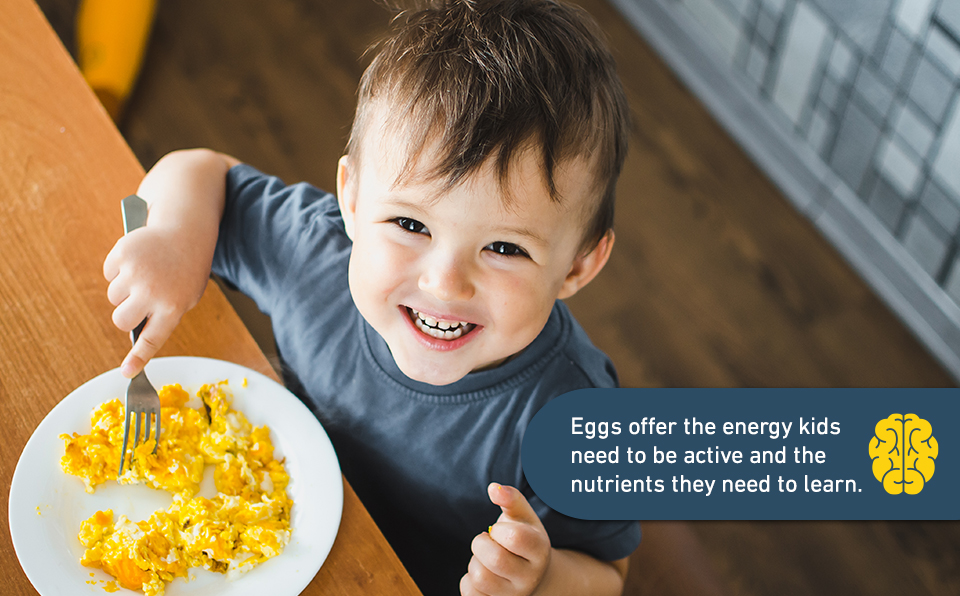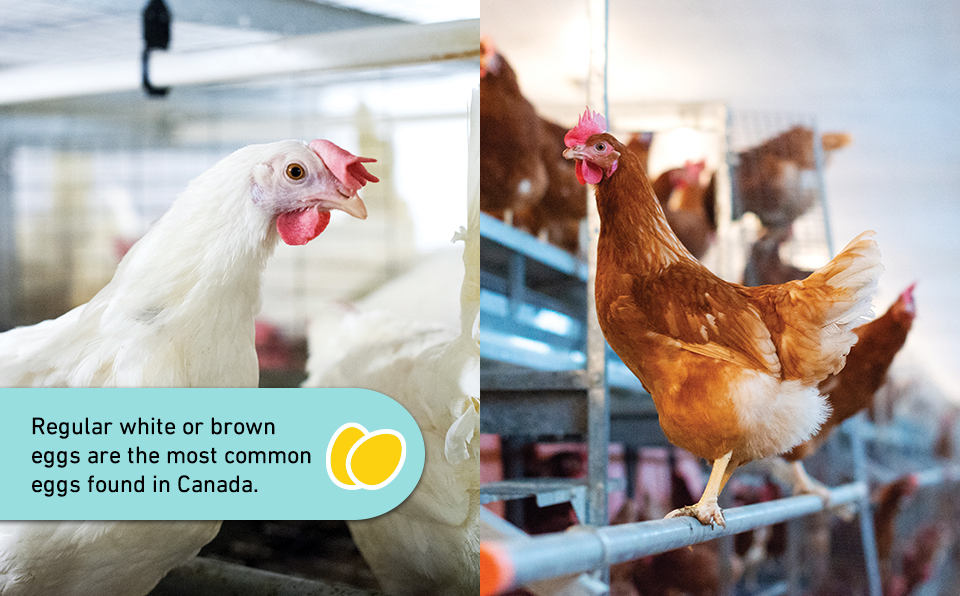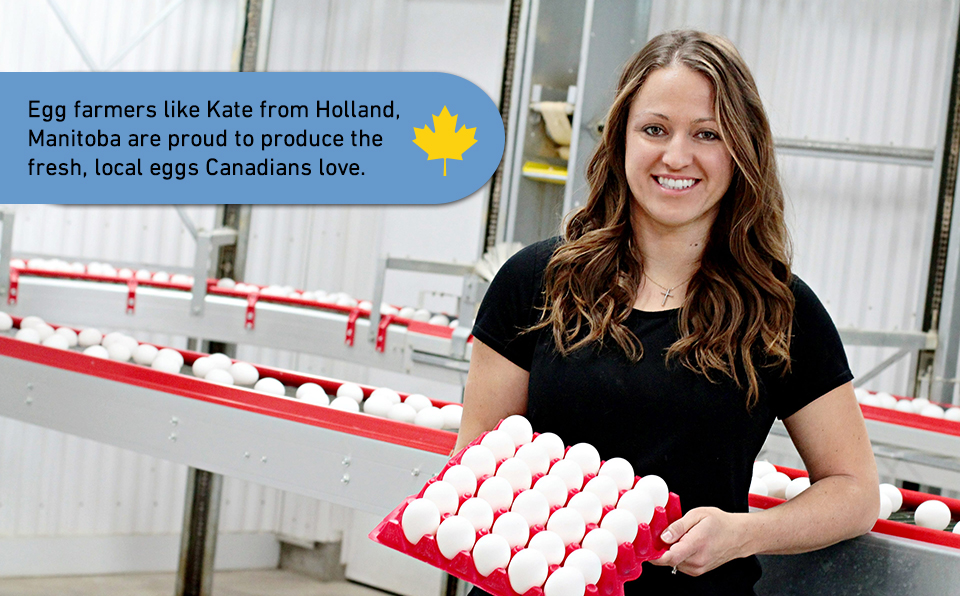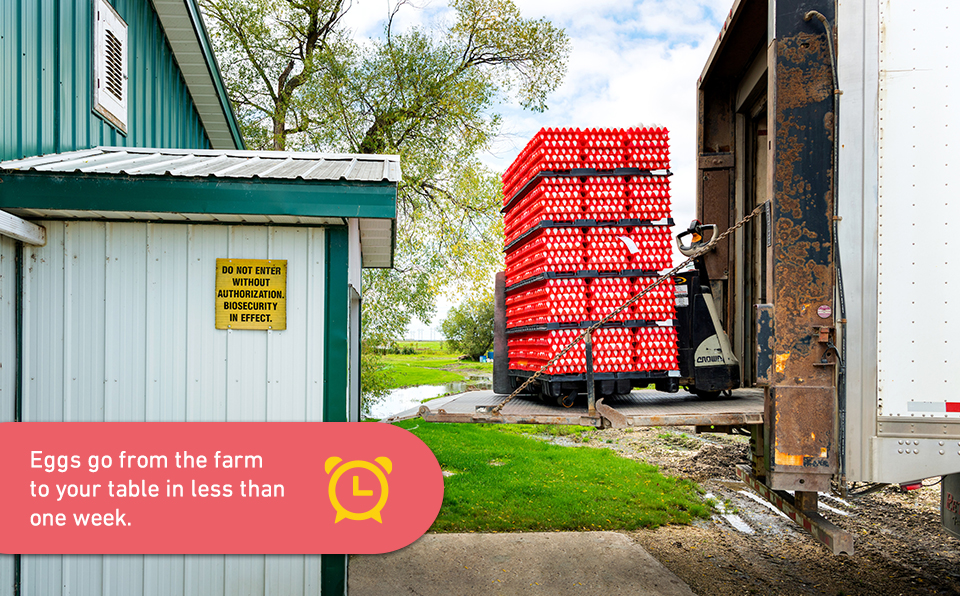
Celebrating 25 years of World Egg Day
By Egg Farmers of CanadaEach year around the world, the second Friday in October marks a special day to celebrate the mighty egg. It’s World Egg Day! On Friday, October 8th egg farmers and fans worldwide are sharing their love of eggs, and the positive impact they offer for health, sustainability, community strength and much more.
On World Egg Day this year, we’re celebrating the many benefits of the humble egg and the more than 1,200 Canadian egg farmers who produce them. Take a closer look at the Canadian egg industry and learn how egg farmers are making an impact from coast to coast in this celebratory video.
To help get you in the World Egg Day spirit, here are 25 egg-citing facts about eggs and the Canadian egg industry.
- Eggs are the perfect ingredient for dishes all over the world, like this hearty vegetable soup that fuses Portuguese and Moroccan flavours. There are so many “egg-cellent” recipes to be enjoyed, we pinned them all on Pinterest!

- More than 90% of Canadians have confidence in the quality standards held by Canadian farmers. The EQA® program is a symbol of that trust and Canadian egg farmers’ commitment to excellence.
- Eggs are prepared in many different ways across Canada. They can be found in salads, sauces, cookies, cakes, stratas, frittatas and more—the possibilities are endless!
- Eggs are a go-to ingredient for both home chefs like Vijaya Selvaraju and professionals like Chef Josh Gale.
- Eggs are one of the most nutrient-dense natural food sources on the planet. For example, just two eggs have a whopping 13 grams of high-quality protein.
- Eggs have essential nutrients that improve brain function, support physical strength and aid growth in children.

- Canadians love Canadian eggs! The average Canadian consumes 255 eggs every year.
- Eggs are one of the few foods that naturally contain vitamin D, also known as the “sunshine” vitamin.
- The size of an egg is related to the age of the hen who lays it.
- Eggs are a nutritional powerhouse. One egg has only 70 calories and offers 14 essential vitamins and minerals.
- Egg yolks are darker in eggs from hens whose diets rely more on corn. Regardless of yolk colour, all egg varieties are equal in nutrition.
- Brown eggs come from hens with brown feathers, while hens with white feathers lay white eggs.

- Eggs are one of the most environmentally sustainable animal-source proteins available.
- Canada’s egg farmers are leaders in sustainable farming. The environmental footprint of the industry declined by 50% over the past 50 years, while egg production increased by 50%!
- Eggs are produced locally in every province and the Northwest Territories. Canada’s more than 1,200 egg farmers produced 789 million dozen eggs in 2020—that’s over 9 billion eggs!

- Canadian eggs are always fresh and high-quality, thanks to Start Clean-Stay Clean®, a strict on-farm food safety program.
- More than 9 in 10 Canadians believe it is important that their eggs come from Canada.
- Animal welfare is a top priority for Canadian egg farmers. They check on their flock multiple times a day and ensure hens have a balanced diet, fresh water and enjoy a temperature-stable clean air environment.
- Eggs that are fresh will sink in water, while an older egg will float.

- Eggs are stored in their carton for freshness, as well as to keep the egg’s air cell in place and the yolk centered.
- Eggs are graded through a process called candling, where the egg passes over a bright light, revealing the condition of the shell, the size of the air cell and whether the yolk is well-centered.
- The Canadian egg industry supports over 18,500 jobs and contributes $1.3B to Canada’s GDP.
- Eggs are graded by weight into categories that include peewee, small, medium, large, extra large, and jumbo.
- Eggs play a role in regenerative medicine, like bone regeneration and tissue engineering.
- Since 2019, egg farmers across Canada have given back to their local communities by donating millions of eggs to local food banks, breakfast programs and other charitable organizations.
Join the celebration by cooking up your favourite egg dish and sharing the excitement on social media using the hashtag #WorldEggDay! Be sure to follow us on Twitter, Facebook and Instagram for more on World Egg Day and Canada’s egg industry.